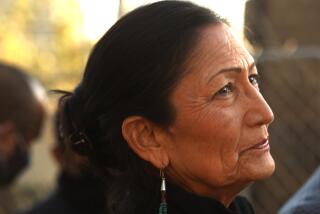The Child Has an Interest, Too : Why automatically elevate parents’ rights over a youngster’s?
- Share via
Even as children represent our best hopes for the future, they arrive in a world that today is traumatized by violence and shaken by social instability. For those additionally caught up in wrenching custody disputes between biological and adoptive parents, the obstacles to getting a fair shake at the outset of life are even more daunting.
The state Supreme Court has added a measure of needed clarity to a national debate, which earlier this year centered on the return of a 2 1/2-year-old Michigan girl to her biological parents from the adoptive parents who had raised her from birth.
In its unanimous reversal of an appeals court ruling, the justices paved the way for a San Juan Capistrano couple to adopt 4-year-old Zacharia D., who had lived with them for most of this year. They denied custody to the boy’s biological father, who, saying he didn’t know initially he was the parent, did not assert his parental claim until more than a year after the child was born. His parental rights later were terminated by a juvenile court after a probation violation stemming from a felony drug conviction. And the boy’s mother lost her parental rights after failing to attend drug rehabilitation or parenting classes.
This case correctly defines the child’s interest in finding refuge in a nurturing home as the preeminent value. In writing for the court, Justice Armand Arabian, who said he was impressed only with the “indifference” of the boy’s father, ruled that the notion of returning the child “elevates the rights of a biological father above the child’s interest in stability and permanency.”
The complex issues in such cases involve balancing the best interests of children, the rights of adoptive parents and the sometimes fickle claims of those who may have done little more than pass along their genes. With the legal ground underneath adoptive parents shifting from state to state, this decision sends a welcome signal of support to those who provide an affirmative atmosphere for children, including youngsters who come from broken homes or dysfunctional families and whose future might otherwise be bleak.
More to Read
Get the L.A. Times Politics newsletter
Deeply reported insights into legislation, politics and policy from Sacramento, Washington and beyond. In your inbox twice per week.
You may occasionally receive promotional content from the Los Angeles Times.










